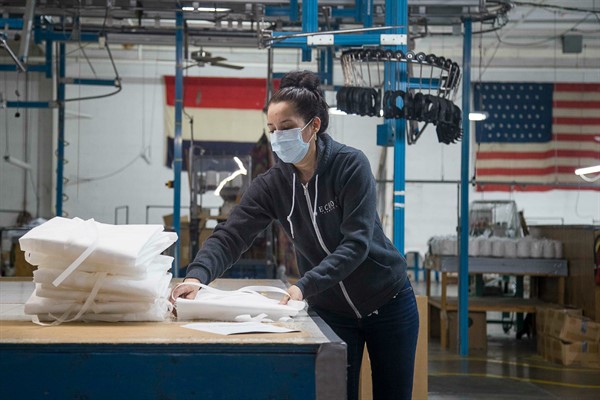President Donald Trump’s aggressive unilateralism on trade appears to be driven by his belief that making imported goods more expensive will lead multinational companies—foreign and domestic, but especially American—to relocate production facilities to the United States. There is nascent evidence that Trump’s trade war with China has caused some reshuffling of supply chains, but mainly to other parts of Asia, not to America. Now, though, some trade hawks in the administration appear to view the coronavirus pandemic as an opportunity to encourage firms to move their supply chains to the U.S., no matter the cost.
The Trump administration is not the only government looking to reduce reliance on imports of critical medical equipment and supplies. French President Emmanuel Macron recently expressed sympathy for the idea, and his finance minister, Bruno Le Maire, has reportedly directed French companies to review their supply chains and suggested that they diversify away from China and the rest of Asia. But the European Union has authority over trade policy for its members, and the bloc’s director-general for trade, Sabine Weyand, recently expressed skepticism that any country—even a whole continent—could achieve self-sufficiency in these or other products.
That means new protectionist policies are more likely to gain traction in Washington. Clearly, Trump only likes trade on terms that he thinks promote American manufacturing. He has repeatedly said that companies that don’t want to pay increased tariffs on imports of steel and aluminum, or a wide variety of products from China, should produce more domestically. During talks on the U.S.-Mexico-Canada Agreement, the successor to NAFTA, American negotiators insisted on restrictive rules of origin for automobiles to force producers to use more American content. The pandemic is likely to reinforce Trump’s belief that “there are critical technologies, critical resources, reserve manufacturing capacity that we want here in the U.S. in case of crisis,” Elizabeth Economy, a senior fellow at the Council on Foreign Relations, recently told The New York Times.

